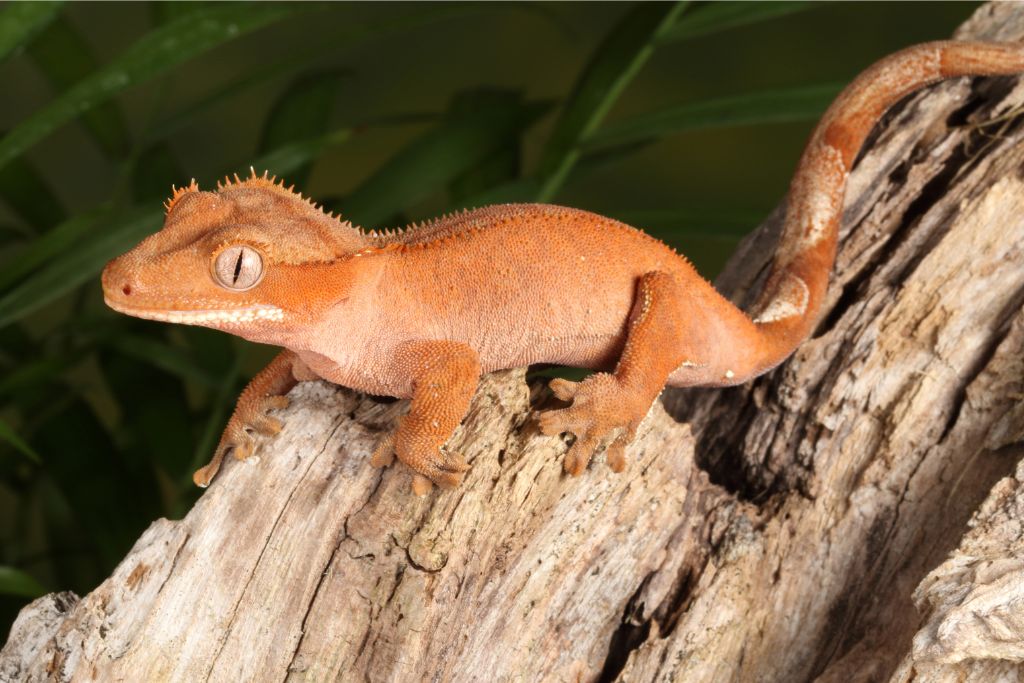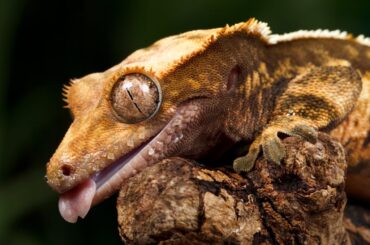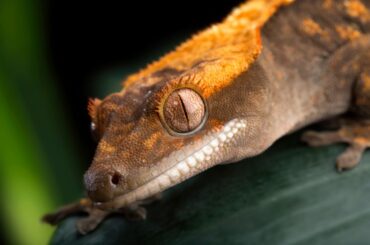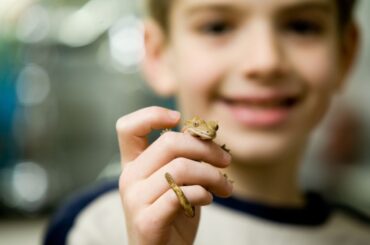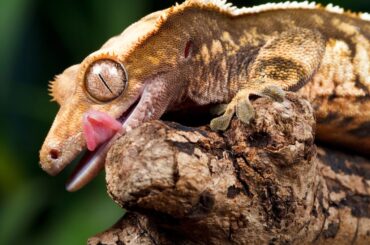Have you wondered if your crested gecko is healthy? Or how its health impacts overall wellbeing? Did you know crested geckos are commonly disregarded for obesity?
Crested geckos are intriguing pets known for their distinctive look and easy care. However, a vital aspect of their care that often gets overlooked is the risk of obesity. Describing crested geckos as “fat” might sound unusual, but obesity is a real concern for them.
Poor diet, lack of exercise, and their environment can lead to weight gain and health issues. Recognizing overweight crested geckos can impair their lifespan, fertility, and quality of life.
Obesity can cause metabolic diseases, shedding issues, and reproductive issues. We must help our geckos thrive, including maintaining a healthy weight. Keep reading to discover what you can do to make your crested gecko the happiest!
Crested Gecko Body Condition
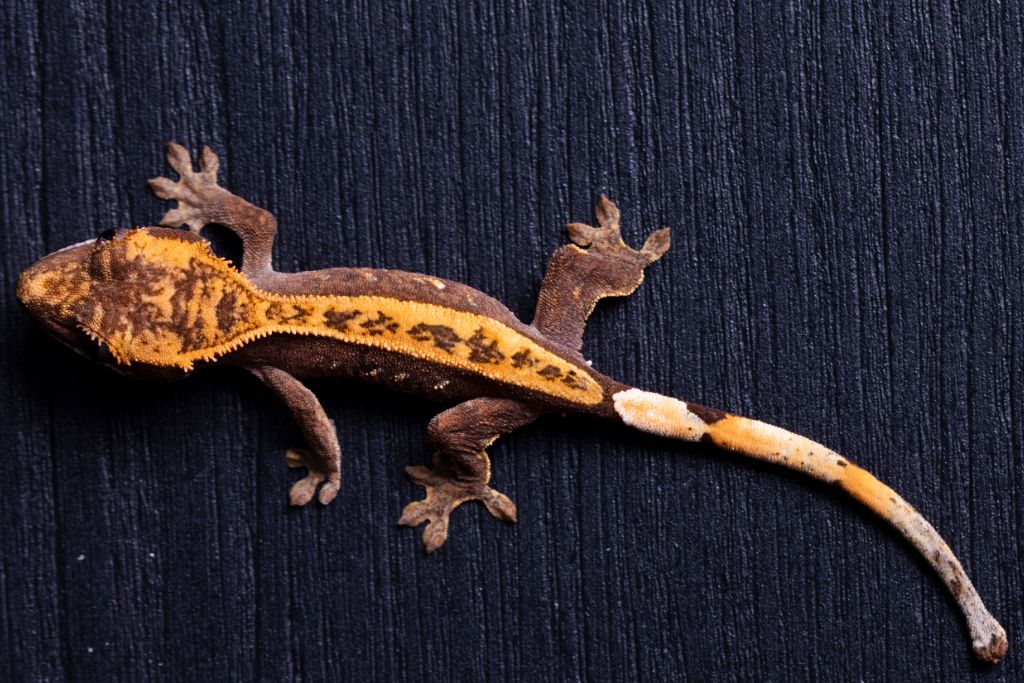
Understanding a crested gecko’s bodily state is vital to its survival. Healthy crested geckos have a prominent waistline and a trim, muscular body.
Your gecko should look like an inverted triangle with a broader head. It should have a narrower tail when viewed from above. The ribs should be palpable but not protruding. The skin shouldn’t have too many folds and feel plump and soft.
Keeping crested geckos at the right weight is vital for their health. An overweight gecko may have trouble moving, limited agility, and metabolic problems. Obesity can negatively impact their ability to reproduce, leading to complications in breeding.
You can tell if your gecko is healthy by how it looks and acts. Healthy geckos are active, curious, and love to climb and explore. Overweight geckos might seem lazy, avoid climbing, and not interested in moving around.
Identifying Signs of Overweight Crested Gecko
Before discussing geckos being too heavy, it’s crucial to notice the signs. These indicators help you understand their weight and overall health.
Weight Gain and Body Shape
To tell if a crested gecko is too heavy, look for changes in how it looks and its body structure. If a gecko is overweight, it might look rounder and plumper compared to a healthy one.
Weighing your gecko regularly is a good way to monitor any weight changes. Checking often helps spot problems early on. It allows you to adjust your gecko’s diet and lifestyle for the better.
Fat Pads and Tail
Knowing where and how fat pads appear on a crested gecko is important. They are usually near the tail base and under the neck. They can indicate if your gecko is becoming overweight.
You can check your gecko’s health by looking at its tail. If the tail is thicker and feels softer, it could mean your gecko is overweight.
Decreased Activity Levels
If your gecko gains too much weight, it might move around less. Watch for changes like not wanting to climb or exploring less.
Keeping track of how much your gecko moves around helps catch weight problems early. Making their surroundings better and handling them properly can help them lose weight by encouraging them to be more active.
Impact on Health
Crested geckos becoming too fat can cause various health problems. One issue is fatty liver disease, where too much fat builds up in the liver. This can make the organ not work well and cause serious complications.
Geckos that are overweight might find it hard to move around. It can also make activities like climbing and hunting challenging for them. These difficulties can affect their happiness and overall quality of life.
Owners should focus on a balanced diet, exercise, and environmental enrichment. Comprehensive crested gecko care includes regular veterinary examinations to detect health issues early.
Factors Contributing to Overweight Crested Geckos
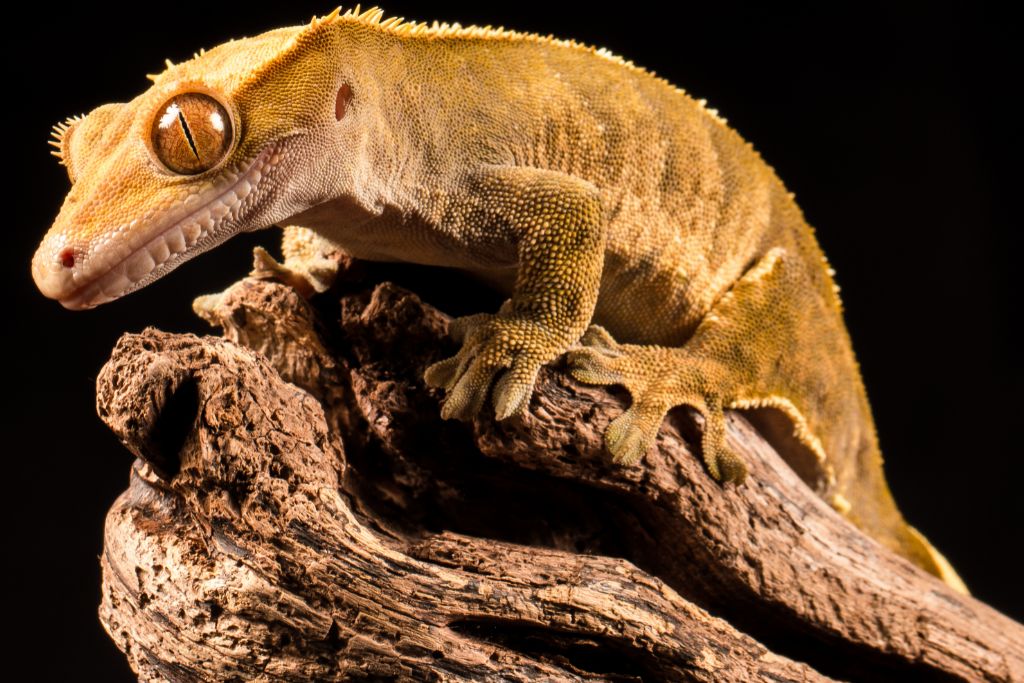
Responsible crested gecko care requires understanding the causes of obesity. Let’s look at some frequent crested gecko weight growth factors before discussing prevention:
- Overfeeding: Overfeeding crested geckos or feeding them fatty insects can cause weight gain.
- Inadequate Exercise: Sedentary lifestyles in enclosed spaces may cause weight gain.
- Incorrect Diet Composition: Lack of variety or nutrient imbalance may cause crested gecko obesity.
- Improper Temperature Regulation: Incorrect enclosure temperature gradients can prevent thermoregulation, causing weight gain.
Preventing and Managing Obese Crested Gecko
It’s important to know what causes obesity in these reptiles. Diet, surroundings, and care can all affect a crested gecko’s health. Therefore, taking proactive measures for both treatment and prevention is essential.
Proper Nutrition
To keep crested geckos healthy, feed them a balanced diet. A proper diet typically consists of various food contents. Commercial powdered gecko diets can be mixed with crickets and fruit snacks.
Choosing high-quality commercial foods that fulfill your gecko’s nutritional needs is essential. Portion control is equally important, as overfeeding can lead to obesity. Follow recommended feeding guidelines, and adjust portions based on your gecko’s size. Monitor their body condition regularly to make necessary adjustments.
Encouraging Exercise
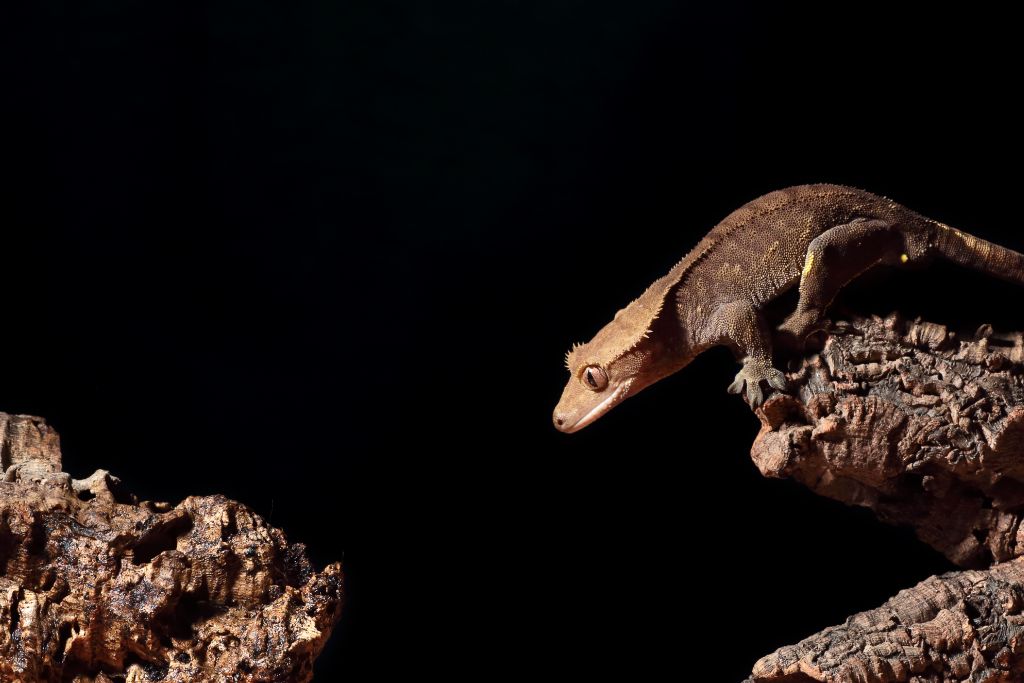
Stimulating physical activity is vital for preventing and managing obesity in crested geckos. Give them a place to live with lots of branches, foliage, and ways to climb to encourage them to act naturally.
Introduce hideouts and toys to encourage gecko exploration and movement. Consider implementing a rotating enclosure setup to mentally and physically stimulate your gecko. Regular handling can help your gecko exercise, but be cautious of its comfort and stress.
Consultation with a Vet
Reptile-experienced veterinarians can check your gecko, treat underlying concerns, and make recommendations. Crested geckos need regular vet visits to detect weight-related health issues early.
A vet can advise on their dietary adjustments, exercise routines, and overall care. Crested geckos need regular vet visits to detect weight-related health issues early.
Conclusion
Responsible pet ownership is crucial for the well-being of crested geckos. Proper weight management plays a significant role in ensuring their health and longevity. A balanced diet, weight monitoring, and an enriching environment can help geckos thrive.
It’s essential to resist overfeeding and recognize the possible consequences of excess weight. As caretakers, we hold the responsibility to focus on their health and happiness. Our informed and diligent care can improve these fascinating reptilian buddies’ lives.
FAQs
How to Help a Crested Gecko Lose Weight?
To help a crested gecko lose weight, provide a balanced diet of gut-loaded insects and a variety of fruits. Monitor portion sizes and limit high-calorie treats. Ensure proper hydration with misting. Increase physical activity through climbing structures. Consult a vet if weight loss persists to rule out underlying health issues.
Can Crested Gecko be Overweight?
Yes, crested geckos can become overweight. Overfeeding and a lack of physical activity contribute to excess weight. Their health needs to maintain an appropriate body condition. Overweight geckos are more prone to health issues, such as fatty liver disease.
What Does an Unhealthy Gecko Look Like?
Signs of a sick gecko include weight loss, lethargy, unusual feces, and shedding issues. You may also observe changes in skin color and erratic behavior. Check for illnesses like swelling joints, respiratory difficulties, and parasites. If you notice abnormalities, consult a vet for proper diagnosis and treatment.
What Happens if You Overfeed a Crested Gecko?
Overfeeding crested geckos can result in various health issues. These include obesity, fatty liver disease, and a shorter lifespan. In females, overfeeding may also lead to reproductive problems. Therefore, it’s essential to regulate their diet to ensure their well-being.
How Can You Tell if a Crested Gecko is Healthy?
A healthy crested gecko has clear eyes, smooth skin, a plump tail, and active behavior. Check for regular shedding, well-formed feces, and a good appetite. Healthy geckos are medium-sized, fast, and curious.

